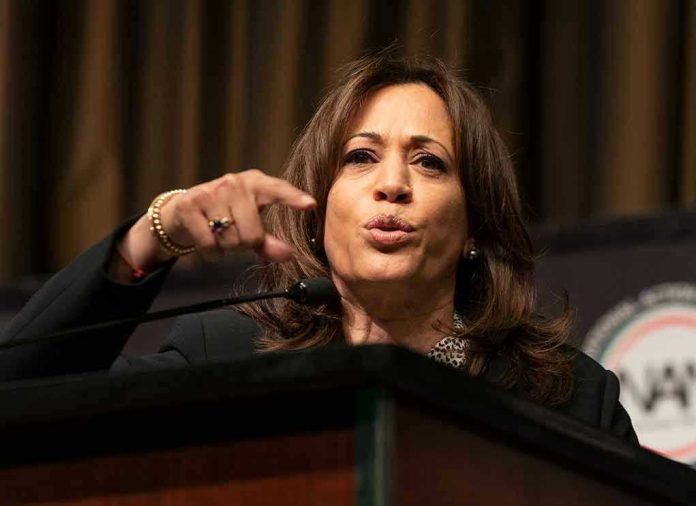
Kamala Harris’s allegations against President Biden’s team highlight a deep-seated internal rift, raising questions about party unity and leadership dynamics.
Story Snapshot
- Kamala Harris accuses Biden’s staff of undermining her vice presidency and 2024 campaign.
- Her memoir “107 Days” details specific incidents of negative narratives fueled by the White House.
- The controversy underscores challenges in defining vice-presidential roles.
- Harris’s claims may impact Democratic Party unity and future political campaigns.
Kamala Harris’s Allegations Against Biden’s Team
In her book “107 Days,” Kamala Harris accuses President Biden’s communication team of exacerbating negative media narratives about her vice presidency and 2024 presidential campaign. Harris highlights incidents, such as her 2021 diplomatic trip to France, where she claims the White House allowed trivial controversies to overshadow her achievements. This accusation underscores the persistent challenges vice presidents face in defining their roles and maintaining favorable public images in a politically charged environment.
Harris’s memoir brings to light the internal dynamics within the Biden administration, where senior staff allegedly contributed to negative perceptions of her management style and campaign efforts. This situation is reminiscent of past administrations where internal leaks and lack of support have undermined vice presidents or cabinet officials. Harris’s revelations have reignited debates about the treatment of vice presidents within the White House and their vulnerability to negative narratives.
Impact on Democratic Party and Political Landscape
The publication of Harris’s memoir has significant implications for the Democratic Party. It highlights potential fractures within the party’s leadership and raises questions about the effectiveness of the communication strategy employed by Biden’s staff. The controversy surrounding Harris’s allegations could strain party unity and influence public trust in White House operations. This internal discord might also affect the Democratic Party’s campaign strategies and fundraising efforts in the upcoming 2026 midterms.
Moreover, this situation underscores the broader challenges faced by vice presidents in asserting their influence and shaping their public image. Harris’s experience reflects ongoing issues of race and gender bias in political institutions, which continue to impact the roles and expectations of minority leaders in high-level positions.
Future Implications for Vice Presidential Roles
Harris’s memoir could prompt reforms in how White House staff structures and communication strategies are managed. Future administrations might need to address the power dynamics and relationships between the president’s and vice president’s offices to prevent similar controversies. The revelations from Harris’s book set a precedent for transparency and internal criticism in political memoirs, influencing how future administrations handle internal communications and staff relations.
Sources:
Fox News: Kamala Harris Complains About Lack of Support
White House Presidential Actions
Education Week: Melania Trump’s AI Challenge




